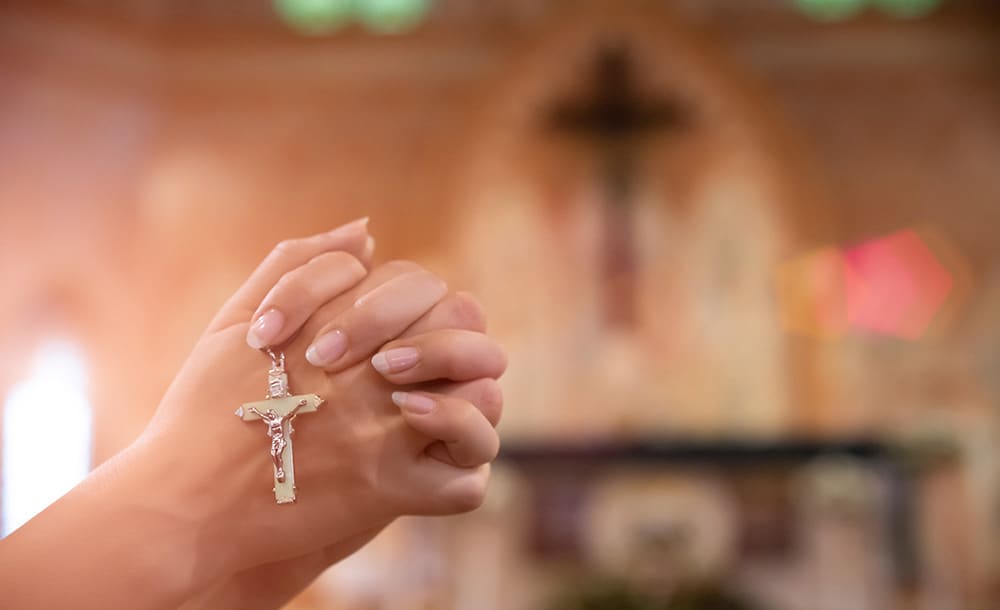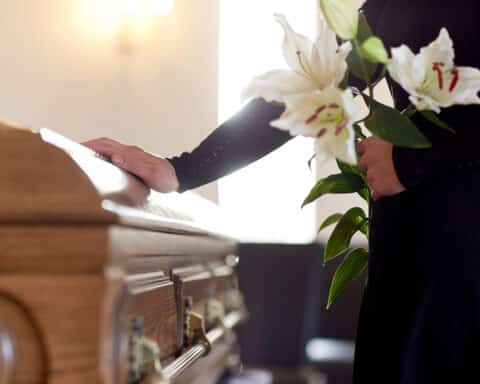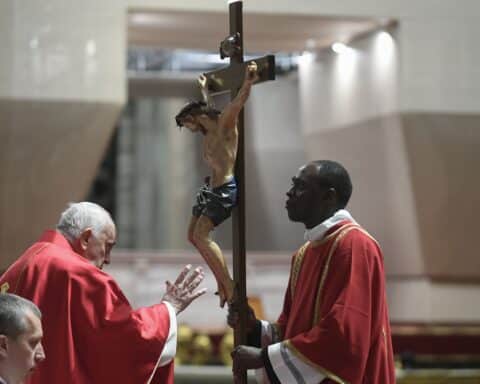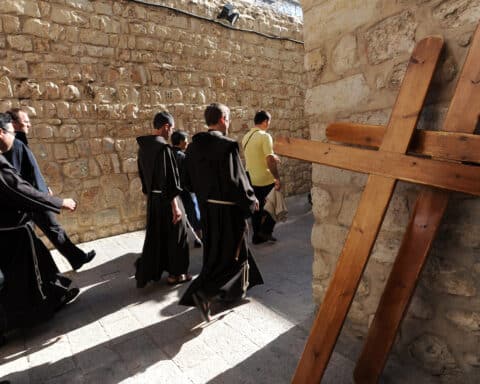“[T]he Church is currently experiencing one of the greatest crises she has ever known,” declared Cardinal Raymond Burke last October. This assessment was recently affirmed by Pope Emeritus Benedict XVI, who described the current situation as “the lasting crisis that the priesthood has been going through for many years.”
In the introduction to their recent book “From the Depths of Our Hearts: Priesthood, Celibacy, and the Crisis of the Catholic Church” (Ignatius Press, $19.95), Pope Benedict and Cardinal Robert Sarah wrote: “The priesthood is going through a dark time. Wounded by the revelation of so many scandals, disconcerted by the constant questioning of their consecrated celibacy, many priests are tempted by the thought of giving up and abandoning everything.” Priests are questioning their vocations at a time when they are needed most to catechize and lead their congregations in the Faith.
The Church is being besieged throughout the world — externally and internally, politically and culturally. And what is true for the universal Church is equally true for the Church in America.
This country is evolving into a secularist, anything-goes society, becoming anti-religious and threatening the ability of people to live their faith in the public square. A host of laws, regulations and judicial rulings are allowing homosexuality, assisted suicide, gay marriage, abortion, pornography, prostitution, self-selected sexual identity and transgender behavior to spread throughout the nation. The advocates for these positions are clamoring not only for acceptance but for special protected rights to acclaim their behavior and force others to adhere to their values or face legal penalties and social sanctions.
The cumulative effect is staggering. Christian bakers, photographers, printers, owners of celebratory venues, nurses, physicians, pharmacists and others are being threatened with civil and workplace penalties if they do not use their skills to celebrate and memorialize activities that violate their religious consciences. Even the Little Sisters of the Poor have been forced to seek relief for the third time by the U.S. Supreme Court to exempt them from a government mandate to provide their employees with health insurance that covers abortion-inducing drugs. And, although the bill was withdrawn before becoming law, the California state senate overwhelmingly approved a bill to force priests to violate the seal of Confession in cases of child abuse.
At a time when the voice of the Catholic Church is needed greatly to meet these external threats, it has been effectively silenced by internal scandals that never cease to shock: sexual abuses of minors and seminarians, hierarchical coverups, embezzlement and misuse of Church funds, disputes among bishops and among cardinals over long-settled dogma, including married clergy, priestly celibacy, ordination of women and Communion to divorced and civilly remarried Catholics, non-Catholics and pro-abortion politicians. The result is a laity that is largely confused and discouraged, and that is either obeying only those elements of the Faith that meet their liking or leaving the Church entirely.
As Pope St. Paul VI warned almost 50 years ago, the “smoke of Satan” has seeped into the Church.
In spite of the moral darkness, there is hope. There are many strong religious elements that can foster a resurgence of the Catholic faith. There are new religious orders with an increasing number of seminarians and postulants. There is a vibrant and expanding lay, Catholic media. There are newly established colleges that are committed to developing strong Catholic identities.
In addition to organizational strengths, there is the youth. On the day of his installation as pope, St. John Paul II said to the young people gathered in St. Peter’s Square, “You are the hope of the Church and of the world.” A commitment to the youth was a continuing theme throughout his ministry, for he saw the young searching for the meaning of life and for ways to lead their lives. The youth, he perceived, are searching for God.
This papal-saint was right. Millennials — those born between 1981-2000 — have already shown that they are a pro-life generation. From among their ranks are many of today’s pro-life activists, disturbing the consciences of their elders, bringing the atrocities of abortion into public view and expanding their numbers through outreach efforts in schools, colleges and universities. They are changing society. Public attitudes are shifting. Pro-life advocacy is increasing. Pro-abortion support is declining. The annual number of abortions is now the lowest it has been since abortion was legalized in 1973.
Passionate, Catholic, young adults and young converts are evangelizing on college campuses, street corners and other public venues. And there are many young families who are living their faith daily — praying, engaging in charitable works and instilling in their children the habits of a Catholic life.
The latest generational cohort, born after 2000, appears to be equally committed to pro-life. Referred to as the iGeneration, the first pictures for many were taken via ultrasound in the womb, presenting them with the undeniable humanity of the unborn. As a positive indicator of the future, teenage pregnancies, births and abortion rates are at all-time lows and decreasing.
While there is reason for hope, a spiritual crisis — a satanic battle — cannot be overcome solely with material approaches. It requires our actions to be aligned with the will of God, so that he can act through us. The path forward requires a concerted effort by all Catholics, clerical and lay, to live the Faith they profess. A reformation can start now in Lent by making it not only a period of spiritual preparation for celebrating the passion, death and resurrection of Our Lord, but of repentance and renewal of the Church.
Let us begin by doing something each day to contribute to a resurgence of the Faith — say the Rosary, spend some time each week in Eucharistic adoration, abstain from meat on Fridays, go to confession, attend Mass more frequently, meditate on the liturgical readings through which the penitential spirit of the season is exemplified.
If we do, the results will be profound. As Pope St. John Paul II reminded us: “The power of Christ’s cross and resurrection is greater than any evil. … [Our Lord’s] demands never exceed man’s abilities. If man accepts these demands with an attitude of faith, he will also find in the grace that God never fails to give him the necessary strength to meet those demands.”
When we pray and do our best to meet the Lord’s expectations, the world will be a different place.
Lawrence P. Grayson is a visiting scholar in the School of Philosophy at The Catholic University of America in Washington, D.C.





